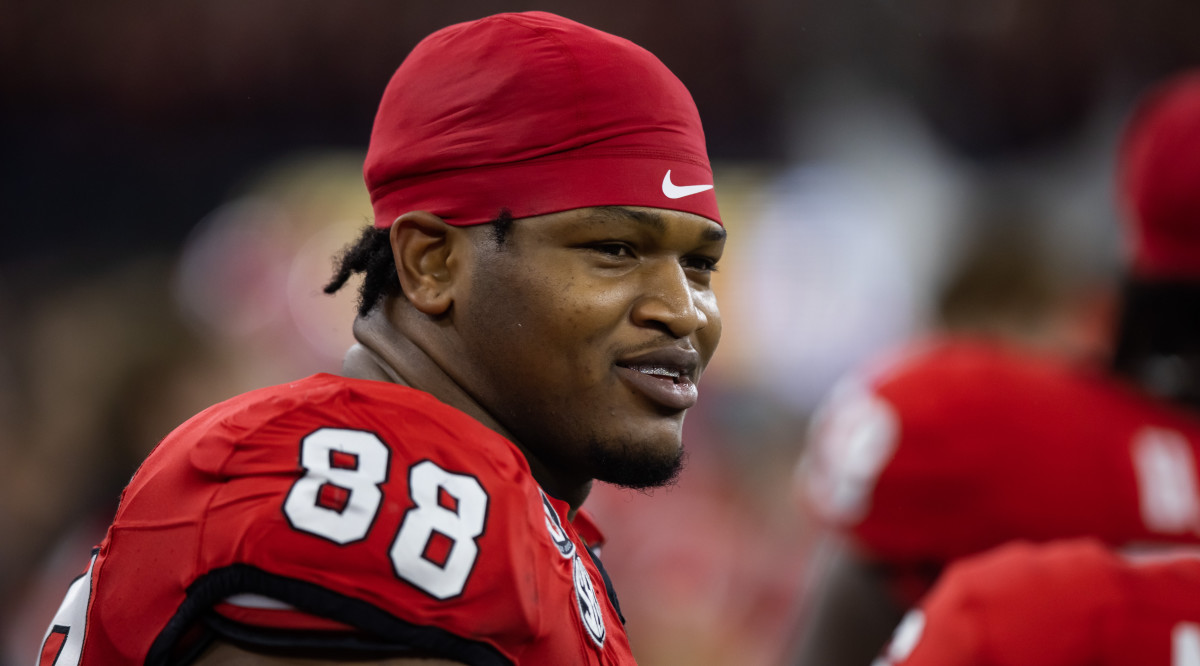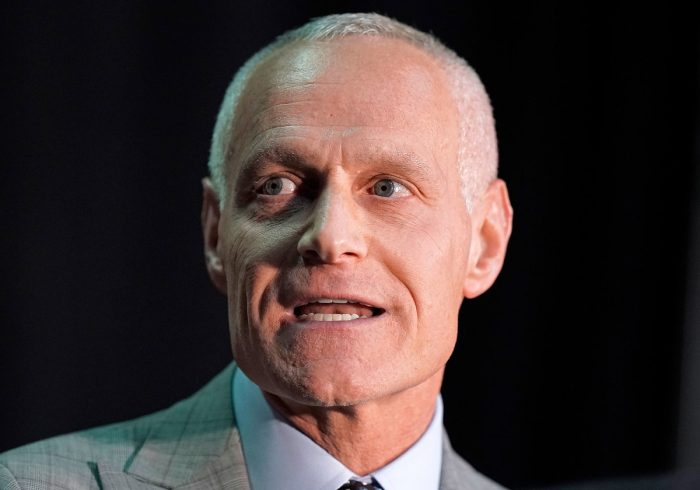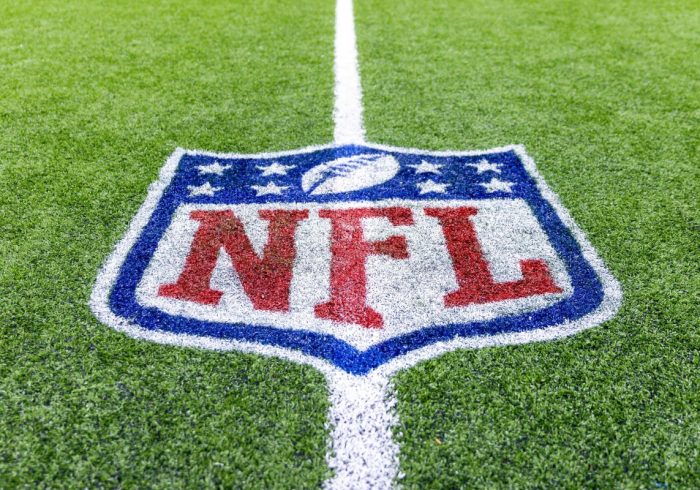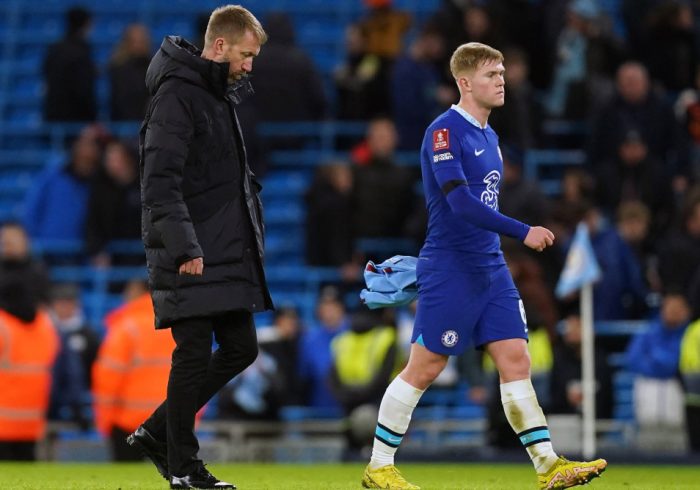With NFL draft declarations in the books, I figured we’d start my Six From Saturday this week by sketching out the top six picks in this year’s draft, three months ahead of the fact. Call it a mock draft if you want. Here goes (and without trades) …
1. Chicago Bears: Jalen Carter, DT, Georgia
Bears GM Ryan Poles helped build a defense in Kansas City whose best player was a disruptive, interior war daddy. Bears coach Matt Eberflus was in Indianapolis when the Colts traded for that kind of guy, DeForest Buckner, and built his final defense as coordinator there around his talents. Carter, to be sure, is that kind of guy. I’ve heard him compared to Fletcher Cox. I’ve heard him compared to Ndamukong Suh. He has that kind of potential, and in this case would give Chicago’s GM and coach a familiar baseline to build off on defense.
Carter has been a star at Georgia and would be a great building block for the Bears.
Mark J. Rebilas/USA TODAY Sports
2. Houston Texans: Bryce Young, QB, Alabama
Nick Caserio comes from a program in New England, and has run one in Houston whose scouting foundation is laid on prototypes and traits. So it’s a very fair question to ask whether he’d draft a quarterback who could come up shy of 5’11” and 190 pounds, and is a good-not-great athlete this high. That said, Young has just about everything else you’d want at the position, and Caserio’s old friend Bill O’Brien—who was Young’s OC the last two years at Bama—thinks very, very highly of the guy. Obviously, there’ll be pressure on the GM and team to go get a quarterback here. So the question then becomes whether Young is that much better than other prospects who check more boxes physically.
3. Arizona Cardinals: Will Anderson Jr., OLB, Alabama
Anderson may not have the ceiling of a Myles Garrett, Jadeveon Clowney or Chase Young. But he can be a culture setter in a way that even Carter wouldn’t be able to for a new GM and coach coming in, with the quarterback position already set in Arizona. And if you’re looking for some comps, I’ve gotten T.J. Watt, Kayvon Thibodeaux and Melvin Ingram on Anderson, which means he’s got a chance to be an incredibly productive, long-term answer as an edge rusher to build a defensive front around. Which is to say this would give Monti Ossenfort a chance to park his first draft pick on the middle of the fairway.
4. Indianapolis Colts: Will Levis, QB, Kentucky
I wanted to put Ohio State QB C.J. Stroud here, because I think Stroud is just a much cleaner projection to the NFL. But I’ve seen Chris Ballard bet on traits and prototypes before, and I’d bet the Colts will love this kid’s toughness. And if they go get themselves a young offensive coach, it’d make sense to put their trust in that coach to develop Levis, who, even after five years in college, is still a bit of a ball of clay developmentally (in large part because of the lack of year-to-year consistency in the coaches he’s worked with).
5. Seattle Seahawks: Tyree Wilson, DE, Texas Tech
There’s definitely a drop-off in nonquarterbacks after Carter and Anderson, so I’m giving the Seahawks a freakish athletic talent who’s big and long, and has a chance to be the sort of impact pressure player up front Pete Carroll has been looking for since Michael Bennett and Cliff Avril left the building. Bottom line, when you’re picking in this range, it’s really hard not to want to swing for an elite talent. And doing that, I think, will be easier here for Carroll and John Schneider since the other options here are probably the tackles, and they took care of those spots last year.
6. Detroit Lions: Myles Murphy, DE, Clemson
The best player on the board here will probably be an offensive tackle (Northwestern’s Peter Skoronski or Ohio State’s Paris Johnson Jr.). But Detroit already has Taylor Decker and Penei Sewell. So it’d make sense for the Lions to make a play here for an edge rusher with size, length and a high ceiling. Unless they really like Stroud, and the idea of a Jared Goff–Stroud 2023–24 transition. Which they could …
More college notes:
• The final list of NFL draft declarations came out Friday, and there were 82 names on it—69 leaving school early and another 13 being graduates who remain underclassmen eligibility-wise. That total number is down from 100 last year and 128 the year before. And I’d say that’s a pretty big benefit to the league and evaluators for the 32 teams. Why? Well, mostly because you’re getting fewer guys who shouldn’t be declaring in the pool and more borderline guys who might need the extra year of development taking that extra year. And, of course, a big reason all those guys are staying in school is access to NIL money. Which will carry us into our next point.
• NIL may be a mess on the college level right now. The transfer portal is, too. And, sure, there are drawbacks for NFL teams being fed these players, too—in some cases, they’re coming into the league raw and messy developmentally because of all the school jumping. But I think most scouts would tell you there’s a benefit to all this for NFL teams as well. First and foremost, it gives you a window into how a kid will conduct himself once he gets some money in his pocket, which until now was a bit of a guessing game. And second, it can be revelatory into who a kid is, and will be, as a football player. So, in the end, all of this isn’t bad for NFL teams to watch transpire.
• The weird situation at Michigan that led to the firing of co-offensive coordinator Matt Weiss could lead to the Ann Arbor–Baltimore pipeline opening up again (Weiss was actually part of that pipeline, too). Outgoing Ravens offensive coordinator Greg Roman worked for John Harbaugh’s brother Jim for six years (two at Stanford, four with the 49ers), and nearly joined him at Michigan five years ago. In the end, Roman stayed in Baltimore and helped build Lamar Jackson’s offense. But Roman’s philosophy still matches what Harbaugh’s built at Michigan, so that’s one to keep an eye on.
• I’d think high school recruit Jaden Rashada getting released from his national letter of intent at Florida over NIL money, and then going on what amounts to a free-agent tour, will get the attention of incoming NCAA president Charlie Baker. It’ll be interesting to see whether he does more than his predecessor, Mark Emmert, did (Emmert did nothing).
• And now, we’ll get to see Deion Sanders coach—he’s got the No. 1 prep corner in the country from each of the last two classes (Travis Hunter and Cormani McClain) at Colorado. He brought Hunter with him from Jackson State. He flipped McClain from Miami’s class. So he’s already done good work just to get them. The trick now, and the real tell on whether what Sanders is building is sustainable, will be turning them into top-shelf NFL prospects. If he can, Colorado’s on its way, big-time. If he can’t, eventually, it’ll catch up to him on the recruiting trail. Either way, it should be fascinating to watch.



